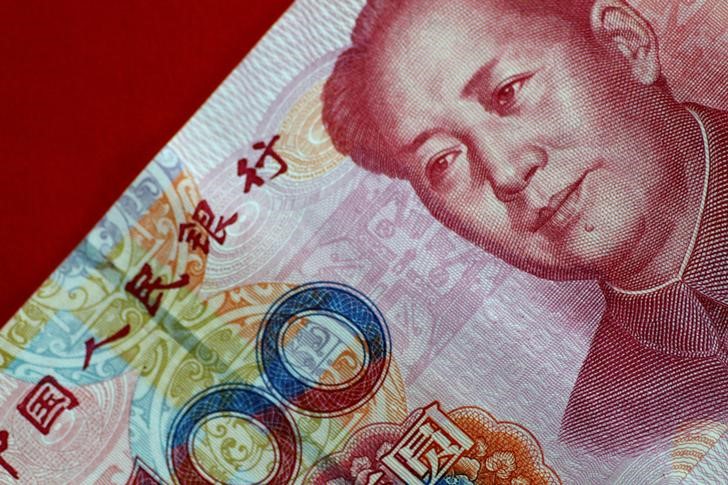Investing.com– Most Asian currencies rose slightly on Wednesday, recovering a measure of recent losses as worsening risk appetite favored the dollar, while the Chinese yuan rose in volatile trade after weak inflation data.
The dollar fell slightly in Asian trade, but was sitting on strong gains so far this week as weak economic signals from China and uncertainty over the Federal Reserve spurred safe haven demand for the greenback.
The and both fell about 0.1% on Wednesday, but were still trading up 0.4% for the week.
Chinese yuan rises after inflation data
The was the best performer among Asian currencies on Wednesday, trading up 0.4% at 7.1883 by 00:17 ET (04:17 GMT). But the currency saw volatile swings, having risen as much as 1% earlier in the session before nearly capitulating all gains.
Chinese (CPI) inflation shrank 0.3% in the 12 months to July- its first such contraction in nearly two years. While Chinese officials said that the decline was only temporary, the data still signaled worsening economic conditions in the country.
grew slightly in July from the prior month, while inflation also shrank at a slower pace. The readings spurred some optimism over an eventual pick-up in Chinese inflation over the coming months, especially as Beijing rolls out more stimulus measures.
But the drop in annual CPI, coupled with disappointing trade data from China on Tuesday, still pointed to a slowing post-COVID economic recovery in Asia’s largest economy. The data also dented sentiment towards broader Asian markets.
The fell 0.2% as an unexpected increase in pushed up expectations that the Bank of Korea will cut interest rates sooner than expected.
The rose 0.1% after dropping sharply in the past two sessions, amid growing uncertainty over the Bank of Japan’s plans for monetary policy.
The rose 0.1%, also recovering from two days of losses, while the added 0.1% ahead of a meeting on Thursday.
U.S. CPI in focus, Asian currencies nurse steep losses
Most Asian currencies were nursing steep losses for the week, as markets turned risk-averse ahead of key U.S. data due on Thursday.
The reading is expected to show that U.S. inflation grew slightly in July from the prior month, potentially keeping the pressure on the Federal Reserve to keep raising interest rates.
Any further increases in U.S. rates bode poorly for Asian currencies and positively for the dollar, as the gap between risky and low-risk yields narrows.
Read the full article here
